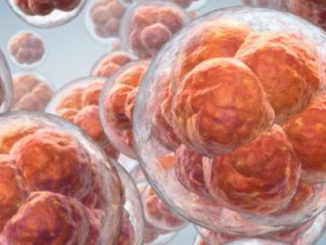Epigenetic inheritance, especially transgenerational epigenetic inheritance, is an important topic in epigenetic research. Do we pass down epigenetic marks to our children as a result of our lifestyle or behavior? Can this occur even long before conception and during pregnancy? Epigenetic studies suggest that the actions of a future mother or father can have long-lasting health effects on their children for years to come.
Studies show that certain DNA methylation marks can survive genome-wide reprogramming and be inherited. For example, a father’s exposure to phthalates could adjust epigenetic marks on sperm DNA and impact a couples’ ability to have children. A father’s diet and supplement intake could also influence his child’s mental fitness.
Mothers can influence epigenetic marks on their offspring’s DNA as well, changing how their baby will react to stress, whether or not they grow up healthy, and their ability to learn, remember and adapt as adults. The Mediterranean diet during pregnancy was shown to epigenetically reduce a child’s risk of disease.
Explore the ways in which lifestyle and habits of a mother and father – and potentially even grandparents or great-grandparents – may influence the epigenetic marks and health of later generations via epigenetic inheritance.
Check out our comprehensive e-book Epigenetics in Life: What We Eat to learn more about how different foods influence health.
Mothers have often – unfortunately and unfairly – had to carry the burden of being “to blame” for any of their child’s health-related shortcomings. When pregnant women are advised: eat more of this but not too much of that, drink this but definitely none of that… why does dad get off scot-free amid these typically well-intentioned suggestions? Previous studies have, for example, epigenetically linked dad’s drinking to his son’s sensitivity and preference for alcohol and connected a father’s diet to [more…]
Thankfully, smoking is a habit all pregnant women are advised to break. But, surprisingly, this wasn’t always the case, especially in the 1940s and 1950s when doctors endorsed smoking in tobacco advertisements. Tobacco companies even ran ads hinting that pregnant women could smoke as a way to calm their nerves. With the influx of research on the harms of cigarettes, it now seems absurd to think they were ever recommended. A recent study in American Journal of Human Genetics links [more…]
If a mother with diabetes drinks green tea during pregnancy, could it improve her child’s development? For years, pregnant women have been advised to take probiotics and antioxidants, such as folic acid, to help improve pregnancy outcomes. However, the precise way these supplements work continues to be up for debate. Now, epigenetic evidence is mounting in regard to the benefits of certain antioxidants and the potential underlying biological mechanisms. New research published in the American Journal of Obstetrics & Gynecology [more…]
Despite the countless destructive health consequences and carcinogenic properties of cigarette smoke, the CDC estimates that 40 million adults in the United States currently smoke cigarettes. The toxic chemicals are capable of causing damage to nearly every organ in the body and can lead to the development of cardiovascular disease, respiratory disease, and cancer. Researchers continue to add to the large body of evidence of the detrimental effects nicotine exposure has on cellular processes and our health. Now, they’re beginning [more…]
Every kid reaching for the junk food has heard mom and dad’s warning, “You are what you eat!” But parents should be advised that children can now offer a humbling retort, “No, I’m what YOU ate!” A new study by scientists from the Institute of Experimental Genetics at Helmholtz Zentrum München (Neuherberg, Germany) suggests that the metabolic consequences of mom and dad’s dietary habits can be inherited by their kids via epigenetic mechanisms. So in addition to inheriting a genetic [more…]
Different environmental factors experienced by a child can undoubtedly impact their life in the long run. Whether they were born into poverty, lack access to education, or are surrounded by violence, these experiences have the ability to dramatically disrupt their lives if they’re without the right support system. But, could a mother’s exposure to stress impact her child even before he or she is born? And could the way a mother treats her child buffer any adverse impact? Research on [more…]
What if stress experienced by fathers could actually be passed down epigenetically to their children, who then experience its effects later in life? Previous research has hinted that, in mice, trauma experienced by a father leaves epigenetic marks on his sperm RNA, which is inherited by his offspring who later express the same depressive behaviors as their dad. Also, another study that investigated the devastating Quebec Ice Storm of 1998 has suggested that prenatal maternal stress could trigger distinct DNA [more…]
Epigenetic reprogramming occurs to the developing mammalian zygote immediately after fertilization and is crucial for proper development. This reprogramming is defined as the erasure of epigenetic marks such as DNA methylation and histone modifications. Researchers continue to uncover new information about the changes made to epigenetic marks on the embryo’s epigenome. In fact, a new study has found that when the process of epigenetic reprogramming goes awry, it can have severe consequences later in development, for instance, leading to abnormal [more…]
Connections between epigenetics and schizophrenia have been previously speculated, although no one knows for certain exactly how epigenetic tags may or may not control the development of the disease. Now, research conducted by a group of international scientists is helping us to understand the epigenetic and genetic components of schizophrenia in the developing human brain. Headed by researchers from the University of Exeter Medical School, Cardiff University and King’s College London, the study was published in Nature Neuroscience and details, [more…]
Evidence supporting multigenerational epigenetic inheritance continues to mount as a group of researchers discover that mothers who have a significant amount of lead present in their blood can epigenetically impact not only their unborn children, but their grandchildren as well. The study was published in Scientific Reports. It is well known that children in the womb can be impacted by small amounts of exposure to lead. If a woman is pregnant and exposed to lead, it can harm the baby [more…]











